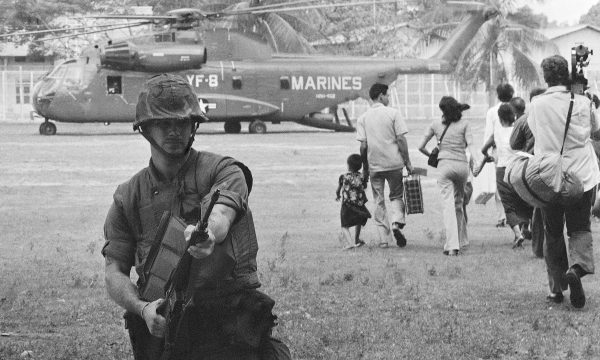

The torturers were to avoid feeding their victims the answers, as this was thought to taint the truth. Each time a person was tortured they were asked to amend their previous confession, until it finally corresponded to what the Khmer Rouge wanted it to say, after which point they were killed. It's telling that the most accurate records of their experiment were the confessions meticulously filed away at the Tuol Sleng Incarceration Center. This led to even more purges and mass killings. Given that this would be the most successful undertaking in human history, why not demand ever greater yields? Whenever these massive surpluses failed to materialize, and the Khmer Rouge's shoddily constructed public works projects fell to bits, it could only be the result of hidden enemies sabotaging the revolution. They also separated families for greater efficiency and generally culled the culture of all non-collectivist farmer oriented elements-useless things like science, art, religion, and so on. They reasoned that if people worked 20 hours a day and ate next to nothing, there should be huge rice surpluses. They seem to have run the entire country like a concentration camp, which as it turns out, doesn't work very well as a system of government. Now that I live here, I figured I kind of have to read up on the Khmer Rouge. Merging original historical research with the many voices of those who lived through the times and exclusive interviews with every Cambodian leader of the past quarter century, When the War Was Over illuminates the darkness of Cambodia with the intensity of a bolt of lightning. Encompassing the era of French colonialism and the revival of Cambodian nationalism 1950s Paris, where Khmer Rouge leader Pol Pot received his political education the killing fields of Cambodia government chambers in Washington, Paris, Moscow, Beijing, Hanoi, and Phnom Penh and the death of Pol Pot in 1998 this is a book of epic vision and staggering power. When the War Was Over is Elizabeth Becker's masterful account of the Cambodian nightmare. Ultimately, almost two million people-nearly a quarter of the population-were killed in what was one of this century's worst crimes against humanity. The intelligentsia were brutally exterminated, and torture, terror, and death became routine. Everyone was sent from the towns and cities to the countryside, where they were forced to labor endlessly in the fields.

Then, with the rise of the Khmer Rouge in 1975 came the closing of the border and a systematic reorganization of Cambodian society. Award-winning journalist Elizabeth Becker started covering Cambodia in 1973 for The Washington Post, when the country was perceived as little more than a footnote to the Vietnam War.


 0 kommentar(er)
0 kommentar(er)
